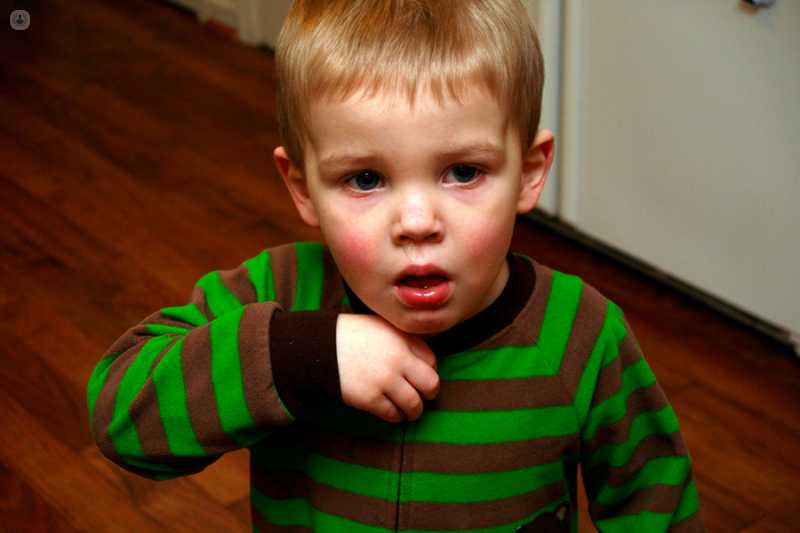


What is croup?
Croup is a contagious condition which causes your child’s upper airways to swell. The swelling occurs in the larynx (vocal cords), trachea (windpipe) and (bronchial tubes), bronchi, which is why croup is sometimes referred to as laryngotracheobronchitis.
Croup mainly occurs in children between 6 months and 3 years old. It is slightly more common in boys, and it tends to occur more frequently during late autumn and early winter.

What are the symptoms of croup?
Croup causes the upper airways to swell up, resulting in a hoarse voice, a rasping breathing sound, and a “barking” cough. Sometimes croup can cause a rash, fever, and red eyes.
If croup is the result of a viral infection, these symptoms are usually preceded by cold-like symptoms such as a runny nose. Sometimes, however, croup can come on suddenly in what is known as spasmodic croup. It’s not clear what causes spasmodic croup, but it may be the result of an allergic reaction in the stomach.
Most cases of croup are mild, and the symptoms usually lasts less than a week. Symptoms are generally worse at night and also worse if your child is agitated by the condition, so it’s important to provide them with comfort.
If your child is having difficulty breathing, difficulty swallowing, or is breathing rapidly, seek immediate medical help.
What are causes croup?
The most common cause is a viral infection that causes swelling of the larynx and trachea. Initially, the virus affects the nose and throat and then extends to the larynx and trachea. The swelling of the larynx and trachea obstructs the available space through which the air enters the lungs, causing the symptoms described above.
Can laryngotracheitis be prevented?
Because croup is usually caused by infection, the best you can do to prevent is to make sure your child is vaccinated against common viruses, and ensure they´re washing their hands regularly.
How is croup treated?
The main way to treat croup and prevent symptoms getting worse is to comfort your child and keep them as calm as possible. Make sure you sit your child upright and give them plenty of fluids. Cough and cold medicines do not help with the treatment of croup.